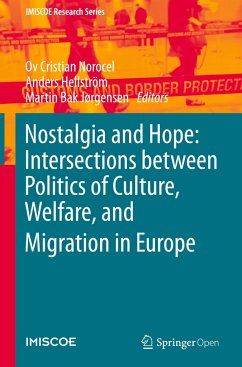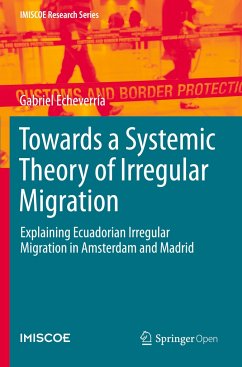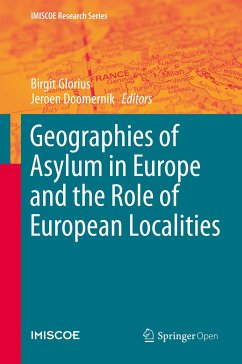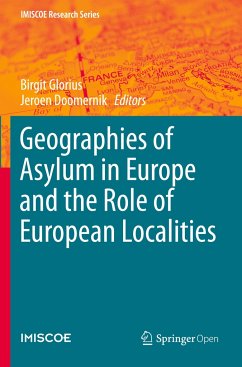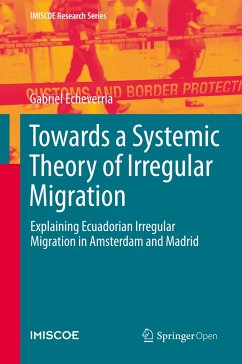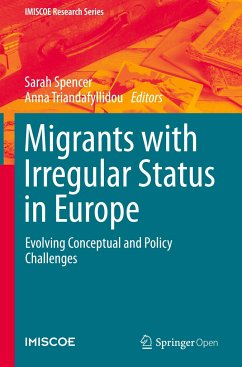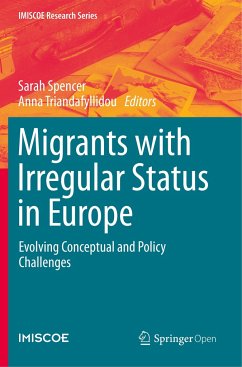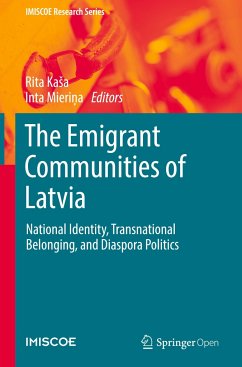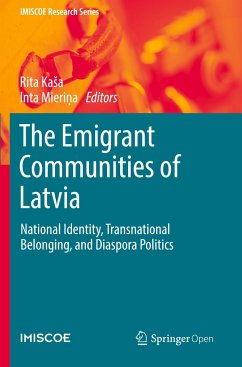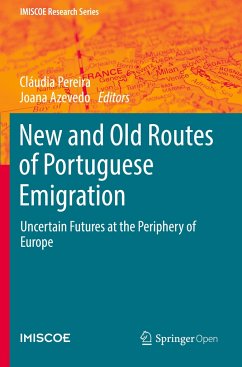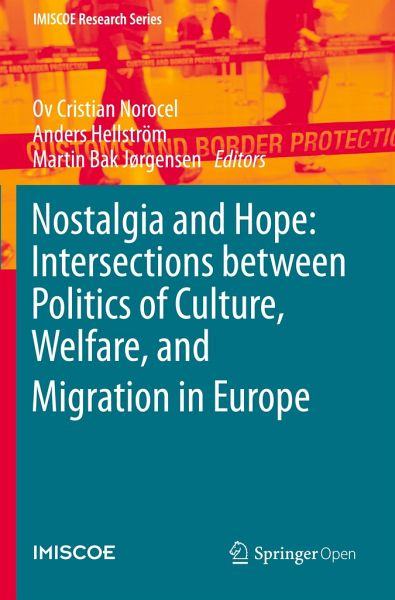
Nostalgia and Hope: Intersections between Politics of Culture, Welfare, and Migration in Europe
Versandkostenfrei!
Versandfertig in 6-10 Tagen
49,99 €
inkl. MwSt.

PAYBACK Punkte
25 °P sammeln!
This open access book shows how the politics of migration affect community building in the 21st century, drawing on both retrogressive and progressive forms of mobilization. It elaborates theoretically and shows empirically how the two master frames of nostalgia and hope are used in local, national and transnational settings, in and outside conventional forms of doing politics. It expands on polarized societal processes and external events relevant for the transformation of European welfare systems and the reproduction of national identities today. It evidences the importance of gender in the ...
This open access book shows how the politics of migration affect community building in the 21st century, drawing on both retrogressive and progressive forms of mobilization. It elaborates theoretically and shows empirically how the two master frames of nostalgia and hope are used in local, national and transnational settings, in and outside conventional forms of doing politics. It expands on polarized societal processes and external events relevant for the transformation of European welfare systems and the reproduction of national identities today. It evidences the importance of gender in the narrative use of the master frames of nostalgia and hope, either as an ideological tool for right-wing populist and extreme right retrogressive mobilization or as an essential element of progressive intersectional politics of hope. It uses both comparative and single case studies to address different perspectives, and by means of various methodological approaches, the manner in whichthe master frames of nostalgia and hope are articulated in the politics of culture, welfare, and migration. The book is organized around three thematic sections whereby the first section deals with right-wing populist party politics across Europe, the second section deals with an articulation of politics beyond party politics by means of retrogressive mobilization, and the third and last section deals with emancipatory initiatives beyond party politics as well.





